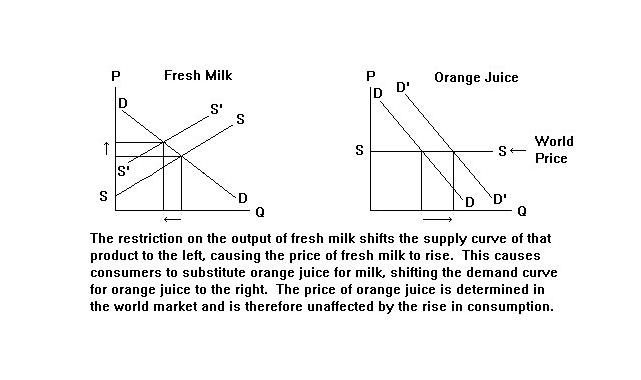
1. increase the quantity of orange juice consumed in the local community.
2. raise the price of orange juice facing local residents.
3. both of the above.
Choose the option that yields the correct answer.
Option 1 is correct. The restriction of the quantity of fresh milk produced results in a leftward shift of the supply curve of that product and a rise in its price. Consumers will switch consumption, in part, from fresh milk to substitute products that satisfy the same wants, one such product being orange juice. So the demand curve for orange juice shifts to the right as a result of the rise in price of one of its substitutes. Since local consumption of orange juice is likely to be a small fraction of the world supply, the supply curve of orange juice to local residents will be horizontal at the world price. As a result, the price of orange juice will not likely increase.
The argument can be seen with reference to the following Figure.

The supply curve of fresh milk shifts to the left from SS to S'S'. Since fresh milk cannot be imported, the price of fresh milk rises. This causes consumers to substitute orange juice for some of the milk they had previously been consuming, shifting the demand curve for orange juice to the right from DD to D'D'. The quantity of orange juice increases but the price of that good does not rise because it is determined in the world market and local residents purchase an insignificant fraction of the world supply.